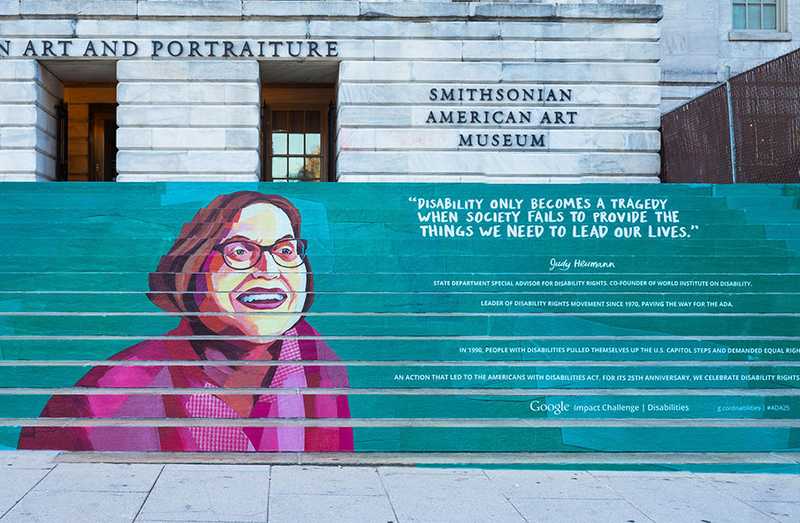The 30th Anniversary of the Americans with Disabilities Act (ADA)
July 26, 2020

The Americans with Disabilties Act (ADA) is a civil rights law that prohibits discrimination against people with disabilities in all areas of public life, including jobs, schools, transportation, and all public and private places that are open to the general public. It was signed into law thirty years ago today, on July 26, 1990. The passage of the ADA was a momentous and hard-won milestone; But it's just that -- a milestone, rather than a destination.
I spent the first four years of my career (and more before that as an intern) working in various roles for the national office of The Arc in Washington, DC. The Arc is the largest national community-based organization advocating for and with people with intellectual and developmental disabilities (I/DD) and serving them and their families. My drive to serve this community during and after college stems directly from my experience growing up with my sister, who has Angelman Syndrome.
At the time, I had a simplistic, naive trust in the law and the goodness of people. It seemed to me that the ADA was a natural and necessary conclusion, and a crowning achievement for disability rights. I knew there was still lots to do to improve the lives of people with disabilities -- look at the work I was literally physically surrounded by -- but I had an innocent trust in the protections afforded by the ADA that seemed so obvious and immutable at the time.
At the time, I also had a much less nuanced view of disability. Though I knew that disability is a spectrum and not a binary, it still seemed far more cut and dry to me at the time than I understand it to be now. I also had no understanding or awareness of the concept of intersectionality.
The truth of it is that the tapestry of lived experiences and perspectives is so much more vast and colorful that I can imagine, even now, that it is so daunting and overwhelming to think about. Combine that with the forces of society, culture and government at work, and it takes my breath away.
I still carry the drive that led me to begin my career at The Arc, and I manifest it in my advocacy and work in web accessibility. The ADA prohibits discrimination against people with disabilities in all areas of public life. Now public life inextricably includes digital life, in a way we couldn't have imagined on July 26, 1990; The internet was in its infancy. Famously, Tim Berners Lee, inventor of the world wide web, stated, "The power of the Web is in its universality. Access by everyone regardless of disability is an essential aspect."
To me, celebrating the ADA's 30th anniversary means reflecting on disability rights history and the physical and digital barriers that still exist today, contemplating what part I play in breaking down those barriers, and seeking out and amplifying the voices of disabled people.
#ADA30 is both a celebration and a critique. So much access has been granted, yet so much access is also denied.
— Haley Moss, Esq. ⚖️🌴☀️ (@haleymossart) July 26, 2020
It's awesome we have the ADA, but there is still a lot of work to be done to dismantle and unlearn ableism.
Watch:
Read:
Books
- Being Heumann (By Judy Heumann)
- Disability Visibility : First-Person Stories from the Twenty-first Century (Edited by Alice Wong)
Articles
- Reflections on #ADA30 as a Young Lawyer with a Disability (By Haley Moss)
- The story of the Americans with Disabilities Act is all about bridges (By Vilissa Thompson and David Johns)
- 30 Years Later, The American Dream Is Still Not ADA-Compliant (By Rebecca Cokley)
- Coronavirus Made Accessibility A Priority. Disability Activists Have Been Fighting For It For Decades. (By Carly Stern)
- Say The Word: Disabled (By Maysoon Zayid)
- ADA 30 In Color (A series of essays edited by Alice Wong)
Listen:
- Disability Visibility Project podcast: Episode 82: Americans with Disabilities Act
- NPR Weekend Edition: The Americans With Disabilities Act Was Signed Into Law 30 Years Ago